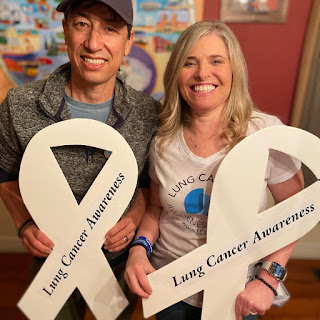Time to Move Beyond the Ribbons?
This past week, I had the pleasure of meeting Massachusetts Senator Ed
Markey and Harvard Medical School Professor of Genetics, Dr. Fred Alt. They
were both in Washington, DC for the presentation of the 2015 NFCR Szent-Györgyi
Prize for Progress in Cancer Research, which was awarded to Dr. Alt and
keynoted by Sen. Markey.
The common theme I heard from both of these distinguished leaders was
captured in a Huffington Post article written by Sam Stein, who
attended the event.
Stein succinctly wrote that “U.S. Science has never been more imperiled”. He
noted that the lack of funding for basic scientific research not only prevents
new discoveries, but it also means that we are losing promising scientists
whose work can’t get funded.
10 years ago, nearly a third of qualified research was funded by
NIH. Now that number is only 14%
(actually even lower for oncology, near 9%).
As Sen. Markey said, “sadly, support for scientific research in our
country is fragile”. And when I asked
Dr. Alt what his biggest concern was for the future of scientific discovery, he
lamented the prospects of losing good young people from the field entirely.
Since 2003, the
NIH budget has seen a 20% cut in purchasing power for new grants. It’s time
to move past the ribbons, and recognize that this is not a zero sum game. As a lung cancer survivor, I care a lot about
the need for research in this area. But
cancer research science has evolved to where we should not be looking just at
cancer type, or organ-specific research.
Cancer is a genetic disease—that is, cancer is caused by changes
to genes that control the way our cells function, especially how they grow and
divide. These changes include mutations in the DNA that makes up our genes.
Genetic changes that increase cancer risk can be inherited from our parents, and
can also be acquired as the result of errors that occur as cells divide during
a person’s lifetime.
Awareness is great, but we need to get serious about cancer research
funding. No matter what ribbon you wear,
let’s realize that we truly are ALL in this together. 30 years from now, if we have lost a
generation of promising scientists due to lack of resources, what progress will
we have made in the fight against cancer?
